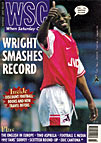 Journalists' freedom to write is being restricted by power-hungry football clubs, says Martin Cloake
Journalists' freedom to write is being restricted by power-hungry football clubs, says Martin Cloake
Having access to football clubs is very important for national newspapers, and for local papers it’s often vital. Football clubs know this, and exploit the situation to minimize unfavourable coverage. WSC has carried several stories over the past year about journalists being banned from clubs, or threatened with bans, because the club doesn’t like what’s being written.
Recently, Kenny Dalglish not only carpeted Newcastle’s Steve Howey after the player criticized the board in a local paper, but also the journalist who did the interview. While Dalglish is entitled to tick off one of his own players, he has no business laying into a journalist who has legitimately obtained an interview and who works for another employer.
Let’s be clear about what many senior football figures object to. It’s not dirt being dished or controversy being created, but awkward questions, rational criticism – anything, in fact, which fails to market the club. Clubs which have banned journalists are all too often not protesting about long lens camera photos of the chairman’s wife frolicking with the centre forward. Rather they are miffed because a paper has pointed out, for example, that one of the directors stands to gain from a proposed ground move, or have reported fans’ complaints about ticket pricing and sales.
Journalists are not there to market football clubs, and no other section of society – even politicians – expects the press which covers it to be so supine. If anyone steps out of line, the ultimate sanction is threatened – the journalist will be denied access to the club. And, for the most part, football journalists go along with it.
Go to a football press conference and you’ll be surprised at how close the relationship between the game and the journalists is. No difficult questions, no new angles, and everyone checks their tape to see if they’ve got the same quotes. When was the last time you read a really original, in-depth interview with a player or club chairman? Simon Kuper’s comments about formulaic standard interviews in which the players say nothing, published in WSC two months ago, rang true.
When the press do ‘go after’ someone, it’s invariably over an issue which fuels the hype machine. So last season’s Schmeichel/Wright feud received acres of coverage, and England managers are fair game for concerted campaigns. Meanwhile, the Brighton board which behaved so disgracefully over the sale of the club’s ground came in for relatively little scrutiny, and nor did Everton chairman Peter Johnson’s stacked ‘consultation exercise’ with the fans over moving from Goodison Park.
If other businesses, and let’s remember that’s what the clubs never tire of telling us they are, behaved in the way many football clubs do, their actions would be all over the papers. Not so football clubs. Because many journalists see themselves as part of the showbiz circus that is modern football, they have no desire or interest in running stories which take the gloss off.
It is difficult to get players to really open up in the way other personalities do but, although it may be difficult, it is a journalist’s job to search out stories, to use scepticism and inquisitiveness to process information.
But it would be a brave journalist who broke the mould and risked becoming a pariah in his own chosen area. The main problem is still the club’s unhealthy attitude to the press, and to freedom of expression.
Evidence is emerging of a harder line being taken with club fanzines, or independent club magazines. Manchester United have taken exception to a small publisher launching United By Football, an independent magazine which aims to carry comment and criticism that has no chance of inclusion in the club’s official literature.
Tottenham Hotspur have stopped players giving interviews to club fanzines, and recently put pressure on a photographic agency to stop supplying photographs to them. Is it a coincidence that these fanzines have been very critical of the current regime at the club?
The clubs say that they want to stop people unconnected with the club from making money out of their brand. There are few cases where this is true, and in any case the hordes of bootleg T-shirt sellers and ticket touts outside most major grounds make far more money than fanzine editors.
For the most part, fanzines are run by fans who pay to watch the club, and provide a welcome alternative to the bland official publications which serve increasingly as merchandising catalogues. They’ve also given breaks to a number of excellent writers now firmly established in the mainstream; many Sunday broadsheet contributors, including several women, cut their teeth on fanzines.
With discussion of privacy laws and the right to freedom of expression gathering pace, the worrying trends in football need to be addressed.
From WSC 128 October 1997. What was happening this month